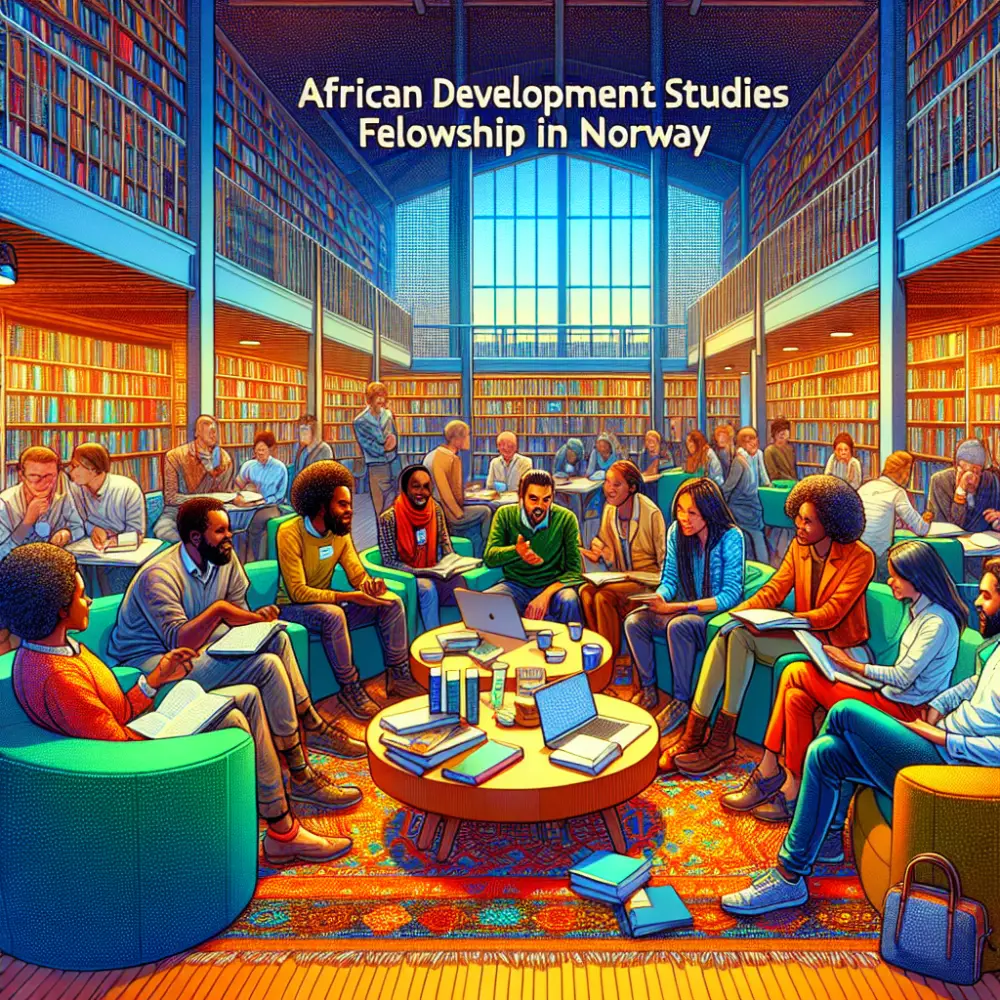Scholarship details
The quest for knowledge and capacity building in Africa continues to receive huge investments from global institutions. One such opportunity, emerging in 2025, is the prestigious “Fully Funded African Development Studies Fellowship in Norway.” This fellowship aims to equip bright, young African minds with the skills and expertise necessary for driving sustainable development across the continent.
Host Organization Overview
The host organization for this fellowship is the Norwegian University of Life Sciences (NMBU). Established in 1859, NMBU is a prime institution that specializes in the intersection of life sciences and sustainable development. With a focus on education, research, and innovation that advances solutions to global challenges, NMBU has earned a reputation as a pioneer in fostering academic excellence and practical solutions to real-world problems.
NMBU’s commitment to sustainability, global health, and development aligns perfectly with their fellowship program. Their goal is not just to impart knowledge, but to also empower fellows to drive socio-economic and environmental progress in their native countries.
Why Norway?
Norway’s status as a top destination for academic pursuits is well-known. The country is celebrated for its rich cultural heritage, high-quality education system, and exceptional quality of life.
Norway prides itself on a robust, well-funded education infrastructure that ranks among the best globally. Scholarships and fellowships such as this one are part of Norway’s contribution to global knowledge exchange. The Nordic nation prioritizes inclusive development, making it an ideal setting for African students looking to gain insights that can be adapted to solve problems back home.
Apart from academia, Norway boasts serene natural landscapes, ranging from spectacular fjords to the enchanting Northern Lights. The country is also renowned for its welcoming demeanor toward international students. These factors, coupled with Norway’s dedication to sustainability, create a conducive environment for scholars to thrive.
Eligibility and Selection Process
The Fully Funded African Development Studies Fellowship in Norway is open to graduate students from African countries. Applicants must hold a relevant undergraduate degree and exhibit a passion for contributing to African development. Strong academic records, robust moral character, and demonstrated leadership skills are vital criteria in the selection process.
Furthermore, candidates will have to submit a detailed research proposal that aligns with the strategic themes of NMBU’s development studies program. Selected fellows receive complete tuition coverage, a monthly stipend, health insurance, and a travel allowance.
Program Structure
The fellowship spans a period of two years in which fellows will engage in rigorous academic coursework and hands-on research. The curriculum aims at providing a blend of theoretical knowledge and practical skills in development studies. Key areas of focus include poverty reduction, public policy, sustainable agriculture, and climate change adaptation.
Research Opportunities and Collaboration
Collaborative learning is a core element of this fellowship. Participants will work alongside peers from diverse backgrounds, enriching the learning environment with varied perspectives. Fellows will also have the chance to engage with other scholarship initiatives as part of their academic growth.
For example, fellows might find interest in the 2018 College Students Video Contest by Christophers. This contest is an excellent platform to showcase innovative ideas relating to development and social change, allowing students to communicate their research outcomes creatively.
Moreover, participants may explore networking and collaboration with scholars involved in the Postdoctoral Scholarship in Engineering at Chalmers University of Technology in Sweden for 2021. Such interactions can create invaluable opportunities for knowledge exchange, broadening the fellows’ understanding of global sustainable development efforts.
Cultural Immersion and Extracurricular Activities
An integral part of the fellowship experience is cultural immersion. Norway provides a unique backdrop for cultural exchange. Fellows will have the chance to partake in various cultural, social, and intellectual activities organized by NMBU. These activities will not only enhance their academic journey but also allow them to form lasting bonds with fellow scholars and the local community.
Living in Norway provides fellows with many opportunities to explore the country’s rich heritage and natural beauty. From skiing in the snowy slopes of Tromsø to sailing along the majestic fjords, fellows will enjoy a well-rounded experience that goes beyond academic learning.
Career Prospects and Impact
Upon completion of the fellowship, participants are expected to return to their home countries equipped with the knowledge and skills to make a significant impact. The training received will prepare them for critical roles in government agencies, non-governmental organizations, academia, and the private sector.
Their newly acquired capabilities in addressing socio-economic issues and promoting sustainable development will be instrumental in driving progress on the African continent. Furthermore, NMBU encourages continued collaboration with former fellows, fostering a global network of professionals dedicated to development goals.
Conclusion
The Fully Funded African Development Studies Fellowship in Norway for 2025 offers a rare and invaluable opportunity for African scholars to gain expertise in sustainable development within an internationally recognized academic institution. Hosted by the Norwegian University of Life Sciences, the fellowship promises a transformative experience that combines academic learning, research opportunities, and cultural immersion.
Norway’s exceptional education system, coupled with its commitment to sustainable development, makes it an ideal venue for this fellowship. This initiative not only bridges knowledge gaps but also empowers African scholars to become agents of change in their respective countries. Through collaborations, contest participations like those with Christophers, and networking with initiatives such as the Chalmers University postdoctoral scholarship, fellows will be well-prepared to contribute meaningfully to Africa’s development trajectory.








